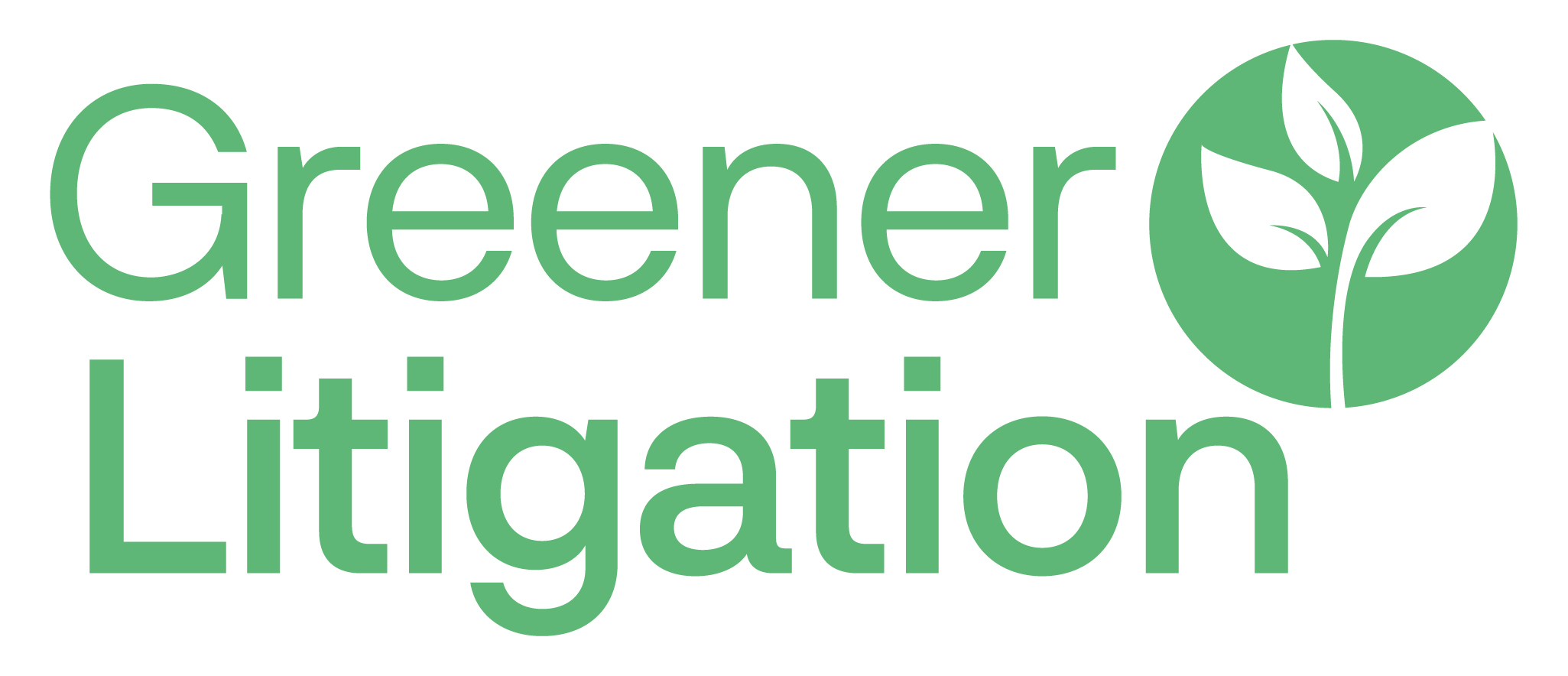Osborne Clarke makes Greener Litigation Pledge
Published on 8th September 2022

International legal practice Osborne Clarke signs the Greener Litigation Pledge, committing to reduce the environmental impact of its Disputes and Risk Practice Group.
Alongside 60 signatories, the Practice pledges to take active steps to reduce its environmental impact when conducting litigation in courts and tribunals. The two key initiatives include removing paper-based processes by going paperlite and or completely digital; and avoiding unnecessary travel.
Being bold, ambitious and authentic is key to our broader sustainability strategy
Catherine Wolfenden, UK Head of the Disputes and Risk Practice Group at Osborne Clarke, said: "Being bold, ambitious and authentic is key to our broader sustainability strategy. As part of our firm-wide commitment to halve our emissions by 2030, the Practice Group will take an active role in in supporting the Greener Litigation Pledge to truly hold ourselves accountable. We know the small changes we make today have big impact in supporting the firm's transition towards a low carbon future."
Established in June 2021, the Greener Litigation Pledge aims to change the way in which dispute resolution practitioners conduct litigation, by reducing the carbon footprint of court disputes in line with the objective of restricting global warming to 1.5°C as set out in the 2015 Paris Agreement.
Osborne Clarke regularly advises clients on environmental and decarbonisation matters, but equally, prioritising its own responsible and ethical credentials is key to the firm's business strategy. The Osborne Clarke For Good framework is the firm's way of ensuring it's a good corporate citizen, a good employer and a good business.
The firm recently joined Business in the Community's Making Work Work campaign in the UK. This is the largest and longest established business-led network dedicated to responsible business, founded 40 years ago by HRH The Prince of Wales. And earlier this year, it announced its commitment to science based targets, in committing to both a near-term target and the long-term SBTi Net Zero Standard.
Osborne Clarke's 2025 strategy is centred on people, clients and communities. It's market-facing three-dimensional client proposition, combines legal expertise, sector understanding and transformational insight across three interlinked international drivers of change: decarbonisation, digitalisation and urban dynamics.

We recognise the importance of restricting global warming to 1.5°C, as identified by the 2015 Paris Agreement. The UK Climate Change Act sets greenhouse gas (GHG) emissions reduction targets to achieve national net zero by 2050.
As organisations involved in dispute resolution, we share an aspiration to reach the position where the most environmentally sustainable options in litigation become the default.
In signing the Greener Litigation Pledge, we commit to take active steps to reduce, with a view to minimising, the environmental impact of our practice in England and Wales, and to the reduction of our emissions in line with the objective of restricting global warming to 1.5°C, including by:
- Taking steps to reduce the environmental footprint and GHG emissions of our dispute resolution practice, including litigation we conduct in the courts and other dispute resolution fora;
- Engaging with the courts and other dispute resolution fora in which we operate to support changes to rules, procedures and practices to reduce the environmental impact of dispute resolution proceedings;
- While always maintaining and promoting the highest standards of justice and client service and complying with the procedural rules of the courts, actively promoting practical steps in litigation in which we are involved, which serve to reduce the environmental footprint and emissions arising from any dispute, including:
-
- Corresponding electronically, unless hard copy is expressly required, while recognising that electronic communication has a carbon footprint and accordingly seeking to avoid unnecessary emails;
- Limiting the printing of hard copy bundles and other documents wherever possible;
- Promoting the use of electronic bundles for court hearings where possible, and liaising with our counterparts at opposing firms and the Court to seek agreement where necessary;
- Walking, cycling or using public transport for journeys to court wherever feasible and appropriate;
- Considering the appropriateness of witnesses giving evidence by video-link and, where appropriate, co-operating with our counterparts at opposing firms and the Court to implement the necessary procedures for giving evidence by video-link;
- Whilst acknowledging the importance of in-person hearings to the administration of justice, actively considering for each hearing whether it is appropriate and amenable to being heard remotely, in whole or in part, including by telephone or by video-link, and, where it is, making that suggestion to the Court and other parties to the litigation;
- Avoiding unnecessary travel in relation to a dispute in which we are acting;
- Committing to the use of renewable energy sources wherever possible;
- Using suppliers and service providers who are committed to reducing their carbon footprint wherever possible and appropriate.
-
- Notifying clients and other parties, including solicitors, counsel, experts and opponents, involved in disputes of our support for the Greener Litigation Pledge, and encouraging their participation.



